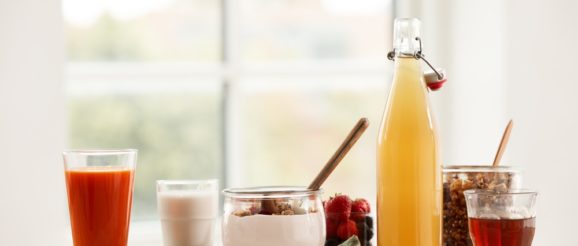DuPont’s clean label food waste innovation for plant-based products

The company unveiled a new addition to its Danisco Holdbac line of protective cultures with Holdbac YM Vege. The product extends shelf-life – and ensures stable product quality – by ‘holding off’ yeast and mold spoilage.
“We have designed this culture to have inhibition properties against a broad spectrum of yeasts and molds. In addition, we offer applications support to our customers to assess the contaminants in their production environment and provide advice on how to best control them,” Eve Martinet-Bareau, global product manager, cultures for plant-based fermented food and beverages, told FoodNavigator.
Extending shelf lift to reduce food waste
With around one-third of the food we produce globally wasted, cutting food waste is both an economic and environmental priority.
According to calculations from the United Nations’ FAO, if food waste were a country it would be the third largest global emitter of carbon, behind only the US and China.
Martinet-Bareau said helping its customers reduce their carbon emissions is was a key objective detailed in DuPont’s sustainability report.
“Preserving quality over shelf-life and reducing food waste are also a core focus for DuPont Nutrition & Biosciences. Indeed, one of our 2020 sustainability goals is to reduce our customer’s greenhouse gas emissions with 15 million tons CO2 annually by 2020, enabled by solutions that reduce food waste, replace high impact raw materials or improve processing efficiency.”
The results – how long the ingredient will preserve fermented plant-based options – depends on the application, manufacturing process, raw material and dosage. In various tests, DuPont found shelf life could ‘easily’ be extended by ten days and ‘sometimes’ by as much as 4 weeks.
Feeding the surge in plant-based innovation
Figures from DuPont reveal a startling rise in growth from 2011-2018 for fermented plant-based products, which reported CAGR of 43%. This compares to CAGR of 16% for dairy alternatives over the same period. In the UK, France and Germany, plant-based yoghurts now generate annual revenues of €75m, €138m and €74m respectively.
The new ingredient will support plant-based product formulators, who have seen a surge in consumer interest. And, by enabling consumers to adopt more plant-based options, the food industry is facilitating a shift towards lower impact diets.
“The industry has seen enormous growth for fermented plant-based products in recent years, driven by higher numbers of flexitarian, vegetarian or vegan consumers around the world. These shifts in diets are driven by a number of factors, including a search for improved health that comes with a plant-based diet, ethical choices toward foods with lower environmental impact and which are deemed better for animal welfare, and switching to dairy alternatives for lactose-intolerant consumers,” said Martinet-Bareau.
DuPont’s calculations suggest substituting 5% of global dairy yoghurt consumption with ‘plant-based products using Dansisco Vege cultures’ could save 1.8m tonnes of carbon emissions annually.
Keeping the label clean
DuPont said product developers face some specific challenges when working on fermented plant-based options. These include consistently ensure high-quality products with the desired taste and texture; securing that quality throughout a product’s shelf-life; and address the fast-growing demand for friendly labelled consumer products.
On this last point, Martinet-Bareau stressed the importance of delivering clean label ingredients.
“DuPont Nutrition & Biosciences is committed to deliver clean-label solutions to the food and beverage Industries, as it is about creating foods and beverages with ingredients that consumers recognise, feel good about putting into their bodies, and that respect the Earth and its resources.
“Our ingredients are already used in many applications that consumers consider clean label, but we continue to innovate in that area – creating ingredients that are even more sustainable, using a larger part of the natural raw materials, while providing health benefits to consumers.”
While customers would need to ensure compliance with local regulations to include the proper label declaration, but normally it would include ‘cultures’, she concluded.
